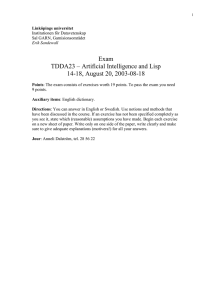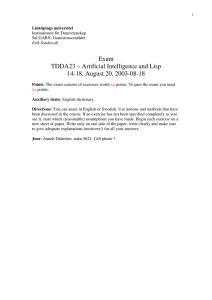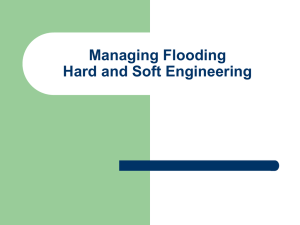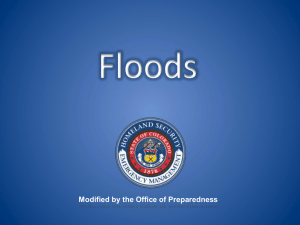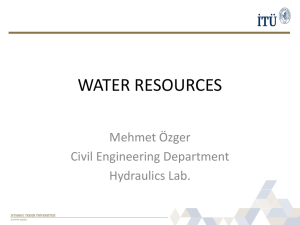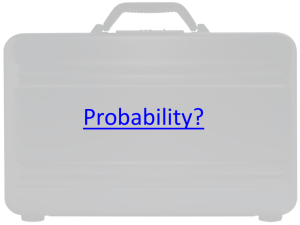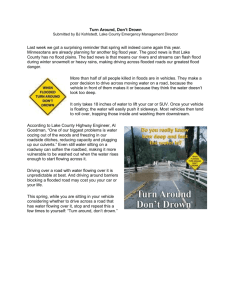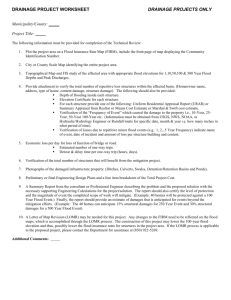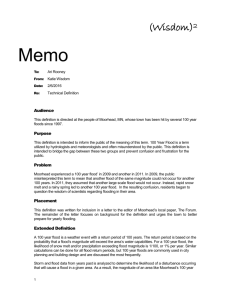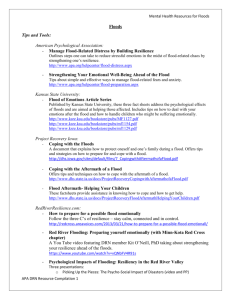After the Rain: Participatory workshops with children to explore
advertisement
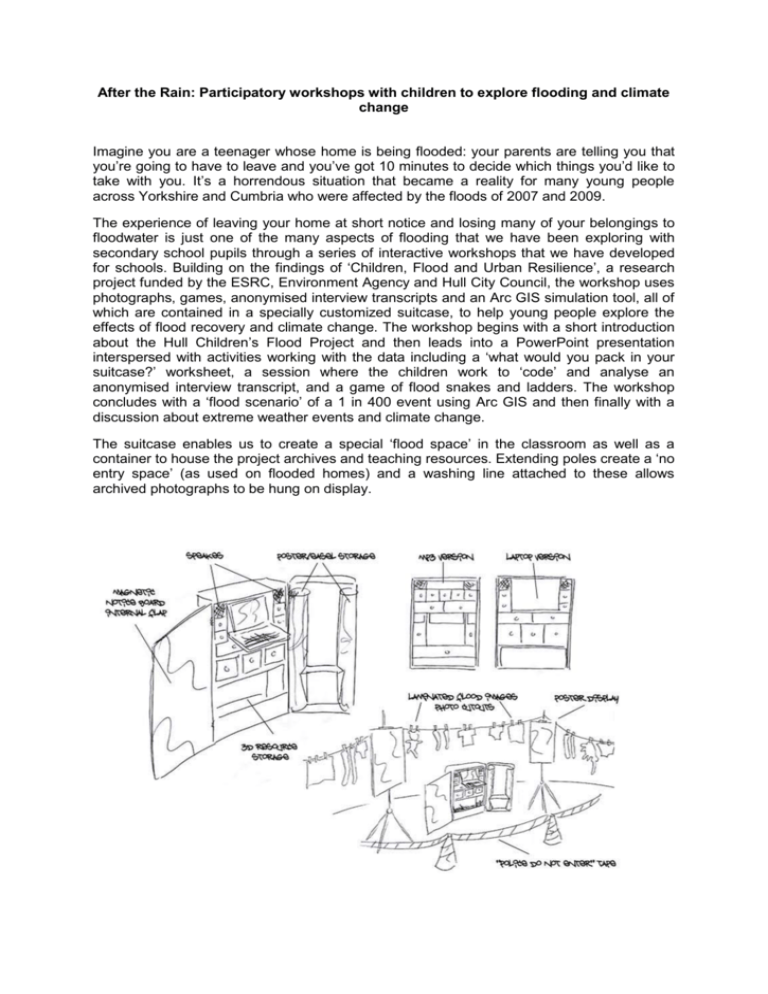
After the Rain: Participatory workshops with children to explore flooding and climate change Imagine you are a teenager whose home is being flooded: your parents are telling you that you’re going to have to leave and you’ve got 10 minutes to decide which things you’d like to take with you. It’s a horrendous situation that became a reality for many young people across Yorkshire and Cumbria who were affected by the floods of 2007 and 2009. The experience of leaving your home at short notice and losing many of your belongings to floodwater is just one of the many aspects of flooding that we have been exploring with secondary school pupils through a series of interactive workshops that we have developed for schools. Building on the findings of ‘Children, Flood and Urban Resilience’, a research project funded by the ESRC, Environment Agency and Hull City Council, the workshop uses photographs, games, anonymised interview transcripts and an Arc GIS simulation tool, all of which are contained in a specially customized suitcase, to help young people explore the effects of flood recovery and climate change. The workshop begins with a short introduction about the Hull Children’s Flood Project and then leads into a PowerPoint presentation interspersed with activities working with the data including a ‘what would you pack in your suitcase?’ worksheet, a session where the children work to ‘code’ and analyse an anonymised interview transcript, and a game of flood snakes and ladders. The workshop concludes with a ‘flood scenario’ of a 1 in 400 event using Arc GIS and then finally with a discussion about extreme weather events and climate change. The suitcase enables us to create a special ‘flood space’ in the classroom as well as a container to house the project archives and teaching resources. Extending poles create a ‘no entry space’ (as used on flooded homes) and a washing line attached to these allows archived photographs to be hung on display. The idea for the workshop stemmed from our research in Hull where we worked with 46 children and young people across the city to find how they were affected by the floods of June 2007. During the research the participating schools were keen for us to go back to talk to the children towards the end of the project about the research findings. As a result, we decided that we would go back to the schools with a special presentation to show the children and young people the things we had learned from them about how their lives were affected by the floods and how they had coped in its aftermath. We then developed the ‘Suitcase’ idea in consultation with local schools and community artist Shane Johnstone. The end result is an innovative, interactive resource which can be used with young people aged 14 -18 and which is relevant to the curriculum of science, geography, humanities and citizenship. The suitcase belongs to ‘Lucy and Peter’, a brother and sister who had to leave their home the morning after the floods. Designed and created by local artist Shane Johnstone, the outside of the suitcase appears to contain Lucy and Peter’s clothes (packed as if they are going ‘on holiday’) but the inside of the case reveals an image of the damaged things they left behind; essentially their personal belongings, the things they didn’t think to pack that are now irreplaceable. The suitcase also provides storage areas for anonymised interview transcripts, poster, whiteboard, sound effects of ‘rain’, and an interactive classroom-sized game of ‘flood snakes and ladders (involving ppt slides, participant quotes and a large inflatable dice). Responses to the workshops have been overwhelmingly positive. After the workshop at Morecambe Community High School, Head of Science, Dr. Phil Jumeau said: “Thank you very much for a very enjoyable session. I spoke to some of the students later on and they enjoyed the workshop and said that it was 'different'. After the Rain wasn't just about 'flood recovery'. The activities had elements of the citizenship, English, science, geography and ICT curricula all packaged into one stimulating workshop that clearly got the students thinking on a very personal level about the forces of nature and the impact that they may be having in terms of global warming and climate change. Dr Walker and Dr Whittle provided those students aspiring to studies beyond secondary school, with a great role-model and a valuable insight into research as a career."


